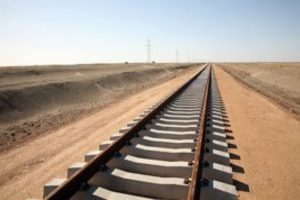
The privately-owned Turkish contracting company, Yapi Merkezi, specializes in rail engineering, manufacture, design, and construction.
” Yapi Merkezi met both the technical and financial requirements after fifteen contractors bought bid documents,” RAHCO said in a statement.
” 17 million tonnes of cargo each year, with a 35-tonne axle load capacity can be transported on the new railway line.
“It will be used by electric trains moving at a speed of 160 kilometres per hour,” added the statement.
Yapi Merkezi which was founded in 1965 and has headquarters in Istanbul has also recently won similar big rail construction deals in Ethiopia.
To replace the existing narrow gauge railway line built some 112 years ago the new standard gauge railway is being built.
In February this year, Yapi Merkezi company was awarded by the government a contract worth 1.22 billion dollars in a joint venture with a Portuguese company to build a 300-kilometer SGR line from the port of Dar es Salaam to Morogoro.
The government did not immediately say how it would pay for the cost of building the Morogoro-Makutupora line, but it previously announced that it was using its own funds to construct the railway section from Dar es Salaam to Morogoro.
Speaking at a signing ceremony for the Morogoro-Makutopora rail deal, RAHCO’s acting managing director, Masanja Kadogosa, said it would take 36 months to build the line
“The project will involve construction of 336 kilometres of the main railway line, 86km of an interchange rail, eight passenger stations, and six cargo stations,” he said
Makame Mbarawa, the Minister for Works, Transport, and Communication, ordered the Turkish firm to speed up construction work.
“We have asked the contractor to shorten the duration of the construction period as much as possible,” he said.
RAHCO said it would also award three additional tenders over the coming months to successful bidders for the construction of close to 700 kilometres of railway.
The government expects to spend 14.2 billion U.S. dollars over the next five years to build a 2,561 kilometres standard gauge railway network connecting the country’s main Indian Ocean port of Dar es Salaam to eastern and southern Africa’s hinterland.
The Dar es Salaam port is a key regional transportation hub for the landlocked nations of the Democratic Republic of the Congo (DRC), Zambia, Rwanda, Burundi, and Uganda.
